10 Best time tracking apps in 2024 (free & paid)
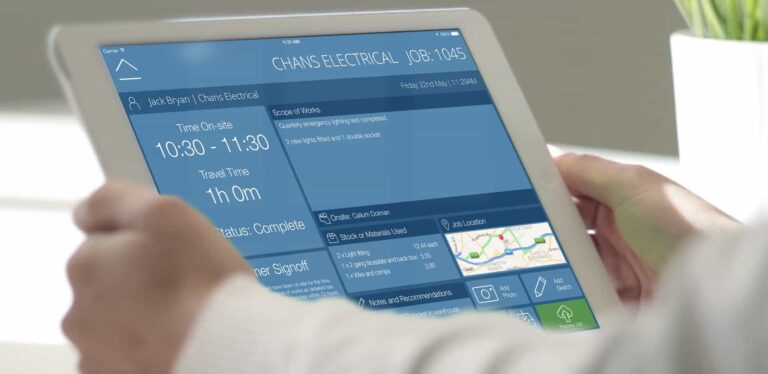
Time tracking apps help you to keep track of your use of time. They can be helpful for both personal and business purposes.
Teams use time tracking apps to monitor what is going on. Bosses use it to keep track of employees. Businesses use it to arrive at fair and profitable prices, and others to boost efficiency.
Time tracking offers so many personal and business advantages, but each app comes with a slightly different design and purpose. It makes sense then, to shop around first, before you make a choice.
This list of the top-10 time tracking apps focuses on the very best offers out there. Plus, it offers you a closer look at each package to help you make the right decision.
Top 10 Time trackers
| Name | Best for | Price | Website |
|---|---|---|---|
| Toggl | Overall best | Free, $9/m | toggl.com |
| Hubstaff | Staff management | Free, $7/m | hubstaff.com |
| Timely | Automation/integration | $8/m | memory.ai/timely |
| ClickUp | Free, project management | Free, $5/m | clickup.com |
| Harvest | Freelancers | Free, $12/m | getharvest.com |
| HourStack | Scheduling | $5.60/m | hourstack.com |
| TimeDoctor | Employee tracking | $7/m | timedoctor.com |
| Clockify | Free plan | Free, $10/m | clockify.me |
| RescueTime | Automated, focus control | $6/m | rescuetime.com |
| Everhour | Embedded tracking | $8.50/m | everhour.com |
1. Toggl
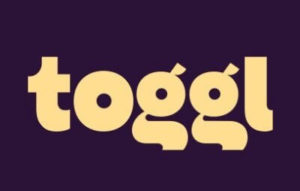
Toggl helps all types of businesses track and save time with its extensive features. It works online, offline, and on-the-go across the web, Windows, macOS, and Linux systems.
Toggl comes with auto-tracking, as well as one-click and Pomodoro timers. You can start the timer yourself or just let the auto tracker run in the background to keep track of every application or website you spend more than 10 seconds on.
You then get summarized and detailed reports that help you see how you or your team is spending time. There are also custom reports with date ranges and custom filters, as well as email-reports scheduling.
Toggl works great for project-cost estimates, budgeting, and timeline forecasts. Its flexibility lets you assign billable rates by project member, team member, or even workspace.
Small teams up to 5 users can get it for free, while larger teams pay $9 per user per month for the Starter plan. This plan comes with more features, as do the other higher plans from the service.
Pros: Extensive features, automated, free plan, integrations
Cons: Wider scope
Website: https://toggl.com
2. Hubstaff
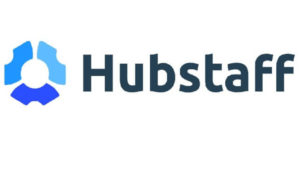
If you are looking to manage your staff better, then check out Hubstaff. It comes with an extensive list of features to track time, location, billing, budget, payroll, and projects seamlessly.
Hubsstaff’s timesheets are stored online, so there is no need for sending out reminders. This feature also lets you view reports in real-time and automate staff payments based on hours worked.
You can additionally use monitoring features, such as screenshots, URL, GPS, and app tracking, or turn them off. With GPS tracking, you can record time on the road and time spent on worksites with Hubstaff’s Geo-fencing feature.
Other features include automatic invoicing for clients, project budgeting, offline tracking, schedules, employee shifts, and integrations with multiple business apps for improved productivity.
Hubstaff is available for free for a single user, but with limited features. Higher plans start at $7 per month per user for Basic, $10 for Premium, and $20 for Enterprise plans.
Pros: Time & activity tracking, GPS, payments, integrations
Cons: Limited features for the free version
Website: https://hubstaff.com
3. Timely
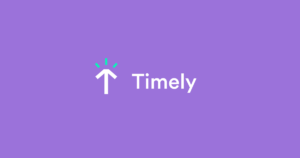
Timely is a time tracking system with automation and privacy features. It is perfect for teams who need to stay accountable but retain their trust.
The tracking is automatic but not invasive. So, the user can select what stays private and what can be shared publicly. It is a great platform for monitoring remote team-members who have a certain level of trust.
You also get project planning and visualization, with up to 90-day timelines, effortless scheduling, and resource balancing across your teams.
There is no free plan. However, you get a 14-day free trial, with plans starting from $8 per user per month for 3 teams with a 50-project maximum. It then goes up to $14 and $20 for unlimited projects, teams, and features.
Pros: Automation, user-friendly, privacy settings
Cons: No free plan
Website: https://memory.ai/timely
4. ClickUp

ClickUp is a project-management SaaS platform with integrated time tracking features. So, you may want to check it out, if you are considering time tracking and project management together.
You can start and stop the timer from any device, with labels, billable time, sorting, and filtering features. You also get customized timesheets, reports, and project estimation.
Truly, ClickUp’s time-tracking features are limited. But it integrates a wide range of services, including time trackers, to make it worthy of consideration. They include Toggle, Hubstaff, Everhour, TimeDoctor, and many of the other top trackers.
ClickUp also offers an impressive free plan with unlimited tasks and unlimited members, while its paid plan costs just $5 per user per month.
Pros: Project management, integration, free plan
Cons: Lacks automatic tracking
Website: https://clickup.com
5. Harvest

Freelancers and freelancing-teams can benefit a great deal from Harvest. It combines time-tracking with budgets, invoicing, and online payments.
Harvest lets you estimate project timelines and costs. So you can better predict costs for your next project. Visual reports let you drill down to see where to save costs or balance your team’s capacity with the workload.
Invoices are automatically generated from your tracked time and emailing them is straightforward. Finally, Stripe and PayPal integrations make it easy to accept payments online. The system also integrates with numerous other services for payroll, project management, and so on.
Solo entrepreneurs can use Harvest for free, but it comes with a 2-project limit. With a $12 monthly payment per user though, you can manage unlimited projects.
Pros: Scheduling, reminders, free plan, templates, integration
Cons: No project management
Website: https://www.getharvest.com
6. HourStack
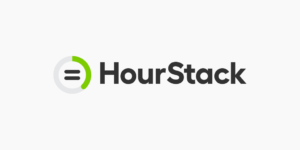
If you manage non-traditional teams and you are considering time tracking with a focus on improving utilization and work efficiency, then HourStack might be for you.
It tries to combine time tracking with time management, scheduling, and visualization. This helps you to understand your team’s time utilization and opens the way for improvements.
HourStack comes with an intuitive drag-and-drop interface that helps in visualizing and scheduling projects and tasks, so you can make the maximum use of your time.
The system is also flexible with multiple workspaces, user settings, and user permissions. Plus, it integrates seamlessly with popular project management tools and calendars including Google and Outlook, Trello, Asana, and so on.
This allows your team to use the platforms that suit them best, while you can manage their time from HourStack.
Plans start from $5.60 per month for the Personal plan, limited to one individual. The Professional plan for teams starts from $12 per user per month. Both plans come with extensive features and there is also an Enterprise plan.
Pros: Unique design, scheduling, flexibility, integration
Cons: No free plan
Website: https://hourstack.com
7. TimeDoctor

Medium to large companies can benefit a lot from TimeDoctor’s features. You can use it to track employees with time details down to single seconds and specific website pages.
TimeDoctor also includes tasks and project tracking, payroll support, screen capture, video screen capture, and integration with multiple services. This makes it a great system for managing organizations of all sizes, including remote teams.
You can view histories for web, app, and chat usage. View summaries of the time spent on each task, project, or client. It lets you see which tasks take up the most time, so you can eliminate time wasters and improve efficiency.
TimeDoctor works on all devices and operating systems, including smartphones, Windows, Linux, and Chrome OS.
Plans start at $7 per user per month and go up depending on the features you need. Team size also matters. As the price scales from 5 users to 10, 20, and up to 50 users for $390 per month. This flexibility lets you start small and scale as your organization grows.
Pros: Extensive features, detailed reporting, billing
Cons: No free plan
Website: https://www.timedoctor.com
8. Clockify

For freelancers and project-focused teams, Clockify is a great app to manage working time. It comes with a clean and simple interface that is intuitive and looks great.
Clockify is available for most of the popular operating systems, including Windows, Chrome, Linux, Android, macOS, and iOS. It is also available as a Firefox extension.
Using it is simple – just click on the start timer before starting any task, and click to stop when you finish. Add relevant details, and that’s it.
You can then view reports later, to see your projects and how much time you spent on them. Detailed reports are available, with data export and team-collaboration features.
Clockify is free to use for unlimited users, projects, reports, and API integration. And starting from $9.99 per month, you get extra features with the Plus, Premium, and Enterprise plans.
Pros: Simple system, free plan, unlimited users, multi-OS support
Cons: No automatic tracking
Website: https://clockify.me
9. RescueTime

The RescueTime system helps individuals and teams take back control of their time. It is an entirely automated system that tracks what you do and helps you to optimize your time.
RescueTime automatically tracks the time you spend on apps, websites, and even documents. Then it presents you with a report of how you spent the time. You can also use manual tracking if you like.
Another nice feature is FocusTime. It blocks distracting websites whenever you need to focus for a given length of time. Plus, you can set daily limits on sites and apps, and even schedule FocusTime sessions in your calendar.
RescueTime costs $6.50 per month for individuals and $6 per user per month for teams.
Pros: Automatic tracking, detailed reports, distraction blocker
Cons: No free plan
Website: https://www.rescuetime.com
10. Everhour
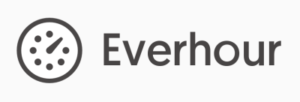
When your team already uses a project-management platform and you need to integrate time tracking, Everhour could be a solution.
It embeds seamlessly into the most popular project management services, ranging from Basecamp to Asana, Github, ClickUp, Jira, and Trello.
It also integrates into other services, such as Slack, Google Sheets, Bitbucket, and Hubspot. Plus, it integrates with Zapier, so you can connect it with over 1,500 apps and services.
Everhour does not come with a free plan and that is one downside. However, it comes with a single full-featured plan that varies in price, based on the number of users. It starts from 5 users and costs $8 per user per month.
Pros: Native embedding, extensive integration, automatic syncing
Cons: No free plan
Website: https://everhour.com
Conclusion
We have reached the end of this top 10 tracking apps list and as you can see, there is a wide range of offers out there.
From the solutions focused on automation to those built for managing large groups and others designed for freelancers and simplicity, there is something for everyone.
Of course, you should go with the offer that best suits your needs. Else, if you should have problems deciding, then try Toggl.
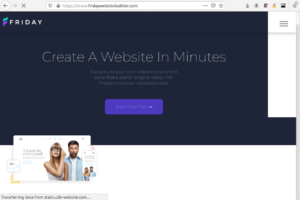
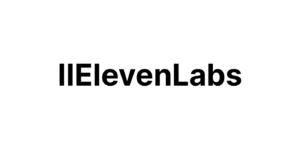
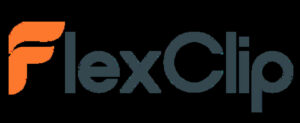



Thanks for sharing. The tool that I use is Fanurio. It helps with the less appealing aspects of freelancing like invoicing and keeping track of time. It’s a useful application, with a user-friendly interface.